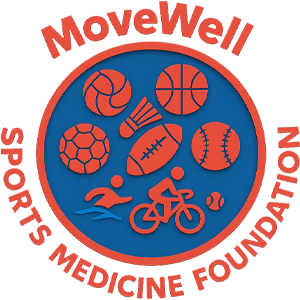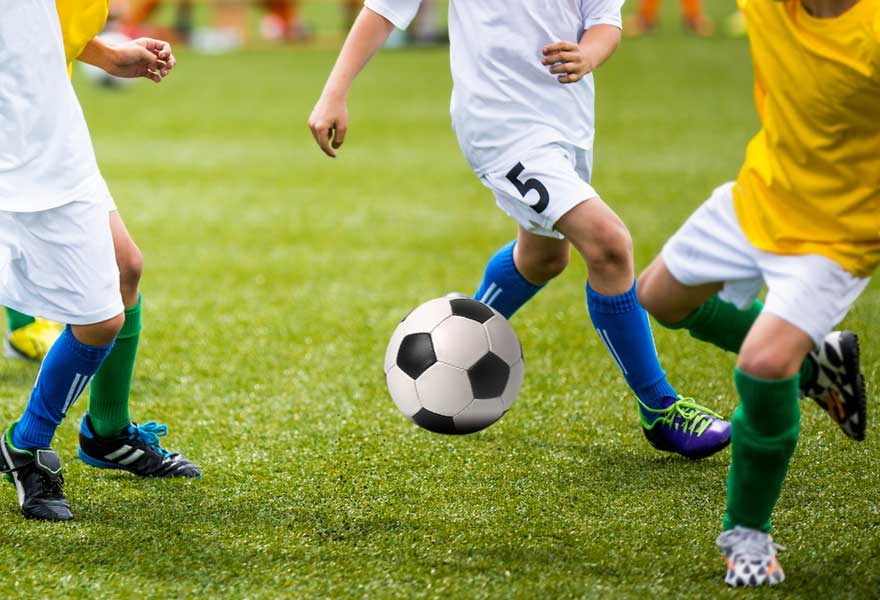Part 1: Protecting Your Body
Your body is your ticket to playing. Keep it healthy, strong, and resilient.
A. Pre-Game: Injury Prevention
Warm-Up Like a Pro
Never skip warm-ups! Static stretching (holding a stretch) is for after the game. Before, do dynamic warm-ups: high knees, butt kicks, leg swings, and lunges to get your blood flowing.
(FIFA 11+ Injury Prevention Program, 2010)
Strength Is Your Armor
Hit the weight room. Focus on:
Core: Prevents back injuries and builds balance.
Legs & Glutes: Protects your knees (ACL) and hamstrings.
Balance: Single-leg exercises help prevent ankle sprains.
(Myer et al., 2008; Hewett et al., 2006)
Fuel and Hydrate
Eat to Win: Choose complex carbs (whole grains, pasta), lean proteins (chicken, fish), and healthy fats (avocado, nuts) for energy and recovery.
Hydrate All Day: Don’t just drink water at practice — dehydration causes cramps, fatigue, and injury risk.
(Sawka et al., 2007, American College of Sports Medicine)
B. In the Game: Smart Play
Technique Over Toughness: Proper tackling, blocking, and landing forms protect your joints and brain. Reckless play can end your season — or your career.
(Giza & Kutcher, 2014)
Listen to Your Body: Fatigue is normal; pain is not. Sharp pain, swelling, or a “pop” needs attention from a trainer immediately. Don’t “tough it out.”
C. Post-Game: Recovery
The 24-Hour Rule: After intense play, your body repairs itself. Sleep 8–10 hours, eat a balanced meal, and hydrate well.
(Fullagar et al., 2015)
R.I.C.E. Works: Rest, Ice, Compression, Elevation for sprains and strains.
See the Trainer: Address small pains before they become injuries.
Part 2: Protecting Your Future (School & Beyond)
Soccer can open doors — but your education keeps them open.
Student Comes First in “Student-Athlete.”
Your GPA is permanent; your soccer stats are not. Use tutoring, study halls, and teacher support. Remember, college eligibility (NCAA/NAIA) depends on grades and test scores.
The Recruiting Process (For College Hopefuls)
Be Proactive: Make your own highlight reel and email coaches.
Ask Questions: Learn about team culture, academic support, and injury management.
Know Your Offer: Full vs. partial scholarships or walk-on status.
Balance Life: Avoid burnout — stay connected with friends, family, and hobbies.
Handle Pressure:
It’s normal to feel stress. Talk to your coach, teammate, or counselor. Learn to reset after mistakes — mental resilience matters as much as skill.
Play for the Right Reasons:
Remember why you started. Love the game, cherish your teammates, and enjoy the journey.
The Bottom Line: Your Golden Rules
Your Brain Is Your Most Important Muscle: Protect it and prioritize school.
Health > Any Game: One injury can end a season — or a career.
Play Hard, Play Smart, and Stay Balanced.
Key References:
FIFA Medical Network. (2010). FIFA 11+: A Complete Warm-Up Program for Injury Prevention.
Hewett, T. E., et al. (2006). Prevention of ACL injuries in female athletes: A systematic review. British Journal of Sports Medicine, 40(6), 502–510.
Myer, G. D., et al. (2008). Neuromuscular training improves performance and lower-extremity biomechanics in female athletes. J Strength Cond Res, 22(2), 324–331.
Sawka, M. N., et al. (2007). ACSM position stand: Exercise and fluid replacement. Med Sci Sports Exerc, 39(2), 377–390.
Giza, C. C., & Kutcher, J. S. (2014). An introduction to sports concussions. JAMA, 311(12), 1190–1191.
Fullagar, H. H. K., et al. (2015). Sleep and athletic performance: The effects of sleep loss on exercise performance, and physiological and cognitive responses to exercise. Sports Medicine, 45(2), 161–186.*




